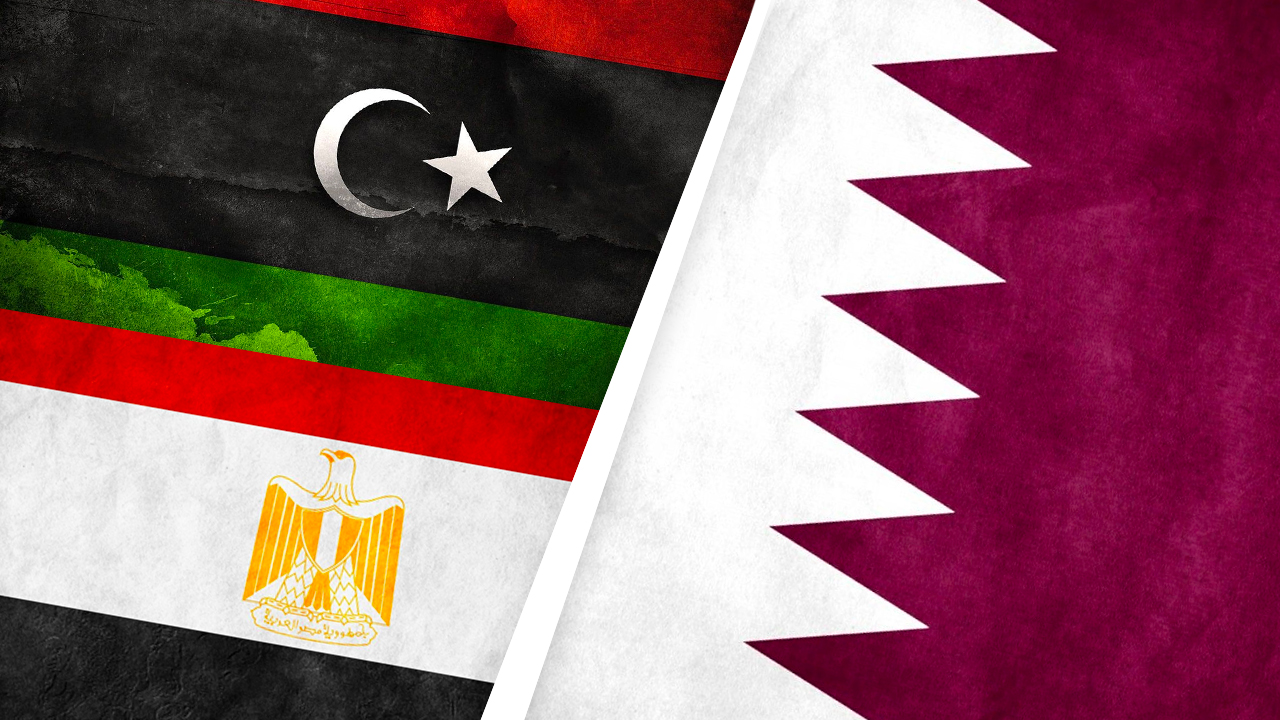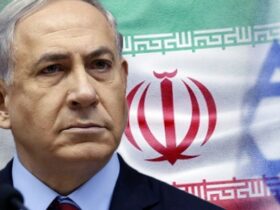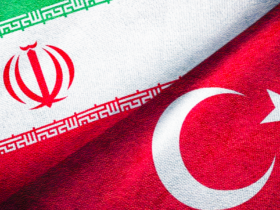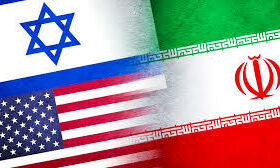By Nardine Ali (Egypt)
Egypt, finally, acknowledges Sarraj’s government in Libya
In an unprecedented step that has overturned Libya’s political and military situations, Egypt has approached the Government of National Accord (GNA) in Tripoli, sparking approbation and discontent in several capitals around the world.
The first Egyptian delegation to be sent to Tripoli in 6 years included the deputy Director of Egypt’s General Intelligence Service (GIS), deputy foreign minister and several officials who met with representatives of the GNA, followed by a phone call between Egypt’s foreign minister Sameh Shoukry with his Libyan counterpart Mohamed Taher Siala.
The visit was lauded by different Libyan factions, including the Justice and Construction Party, the political arm of the Muslim Brotherhood in Libya, who called on Cairo to play a greater role in backing the political course to solve the Libyan crisis, according to Alarabiya.
Egypt’s top requests from the GNA was dissolving the armed militias, expelling the mercenaries and unifying the military institution, according to Sky News Arabia.
The presence of the Egyptian delegation coincided with the visit of the Turkish Minister of Defense Hulusi Akar, which raised the speculations that a meeting between the Egyptian and Turkish visitors took place on the sidelines of the visit. These claims were dismissed by the Turkish side, while the Egyptian side remained silent.
Akar, who was accompanied by top military brass, was scheduled to attend the graduation of a new military batch, threatened against the Libyan National Army (LNA) saying that they are now legitimate targets for Ankara.
Egypt’s move is seen as new page that might entail Egyptian-Turkish cooperation regarding the Libyan crisis, as Ankara has lauded the Egyptian visit as acknowledgement from Cairo of the legitimacy of the Libyan government in Tripoli, dropping its former support to the leader of the Libyan National Army (LNA), Haftar, who has backing from the UAE, Russia and France.
In late December, Turkish Foreign Minister Mevlut Cavusoglu stated that his country’s relationship with Egypt was not limited to intelligence cooperation and included talks at the diplomatic level, according to CNN Arabic.
Cavusoglu affirmed on December 30 that Turkey is in an ongoing dialogue with Egypt to improve relations between the two countries.
“There are contacts at the intelligence level to improve relations with Egypt, but this dialogue also continues at the level of foreign ministries. For example, in the last OIC meeting, Egypt removed its objections on some issues,” the Turkish foreign minister said, revealing that they agreed to cooperate on “a road map”.
Cavusoglu denied that the Egyptian delegation’s visit is linked to the visit of Akar.
Approaching Tripoli is not Egypt’s only playing card, and it doesn’t mean that it has abandoned Haftar on the Western side of the war-torn country. Haftar will remain its guarantee that the redline drawn by President Abdel Fatah Al Sisi [Sirte-Al Jufra] will not be exceeded by the Turkey-backed forces of the GNA.
The synchronization of the Turkish and Egyptian visits to Tripoli has significance, suggesting that Cairo and Ankara have the same purpose in Libya, which is to preserve the unity of Libya and the centralization of its power, according to the political analyst Mahmoud Alloush.
“The Egyptian openness to the Sarraj government was imposed by the Turkish intervention,” Alloush told Alhurra, adding that Turkey’s lack of objection to Libya’s openness to other allies and its commitment to the cease-fire resolution confirms its [Turkey] respect for the interests of the Egyptians and its willingness to cooperate with them.
“Cairo and Ankara, however, are now more than ever aware of the importance of leaving their differences aside and start to cooperate in Libya,” Alloush added.
The Egyptian website Mada Masr speculated that the delegation’s visit is to pre-empt an Emirati incitement on a military adventure in Libya. According to a source that wasn’t identified by the website, Cairo is discontent with the Emirati move to impose a “civil war” in Libya, where the Egyptian delegation told the Libyan side that Egypt will not accept another war on its western borders.
Egypt has agreed to re-open its consulate in Benghazi by mid January, to be followed with a return to its diplomatic mission in Tripoli and the resumption of flights between the countries as soon as possible.
“Working with western Libya will enhance Egypt’s stance to restore its role as a key player in ending the Libyan conflict, which is a priority for Cairo, especially in light of the limited intersection of its interests with the next US administration,” the source told Mada Masr.
The same source confirmed that the Egyptian delegation has met with representatives of three countries while in Tripoli, while it refused to confirm whether the Turkish officials were among them.
Egypt could not avoid the conflict given that the UAE insists to continue its military offensive in Libya, the North Africa researcher Jalal Harchaoui told Mada Masr.
“We should not forget that the UAE has complete access to western Egypt and manages several military bases there,” Harchaoui said, expecting that Cairo may not avoid the war, given the fact it cannot totally disagree with Abu Dhabi.
Qatar returns to the GCC arms, and cautious silence in Cairo
A historic deal took place in the Saudi desert on January 5, 2021, where the Gulf Cooperation Council (GCC) met for the 41st Summit for Gulf countries. The summit this year witnessed an unprecedented attendance of the Emir of Qatar, who have been absent the past three years since the boycott imposed by the Arab quartet, Saudi Arabia, Bahrain, United Arab Emirates (UAE) and Egypt.
The summit was preceded by intensified efforts by the Kuwaiti diplomacy to bridge the gap between the Quartet and Qatar, in an initiative brokered by the US President’s top advisor Jared Kushner, who has close ties with Saudi Crown Prince Mohammed bin Salman and Qatari Emir Tamim bin Hamad Al Thani and was present at the summit.
The vibes seemed positive at the Al-Ula Summit, named after the host city in north-western Saudi Arabia, however, the absence of three of the six monarchs who represent the council say a great deal about their stance toward the reconciliation.
The Saudi Crown Prince, one of the fiercest critics of the Iranian-Qatari approach, showed a warm welcome to the Qatari guest, Sheikh Tamim, hugging him right after landing from his jet, and taking him on a tour of the city after signing the reconciliation deal. On the other hand the absence of Mohamed bin Zayed Al Nahyan, Crown Prince of Abu Dhabi and the mastermind of the boycott, tells us where the UAE stands from the reconciliation, as well for Bahrain which delegated its Crown Prince to replace the king at the historic summit.
President Abdel Fatah Al Sisi was one of the absentees, as he was invited to attend the summit, despite that Egypt is not a member at the GCC. He delegated the responsibility to his foreign minister, who signed the deal and flew back to Cairo shortly.
For Egypt, reconciliation with Qatar was not an option, something that was clear in the media coverage in the weeks preceded the summit, as TV anchors and journalists kept attacking the Gulf country and it Emir, accusing them of funding the terrorist attacks in Egypt following the fall of the Muslim Brotherhood president Mohamed Morsi in 2013. On the official level, the Egyptian officials have repeatedly expressed their caution of signing a deal without a true guarantee from Doha to abandon its activities that caused the feud at first place in 2017.
Following the summit, the official and non-official statements coming out from Cairo and Abu Dhabi revealed that they both do not trust Qatar, however, they put their trust in Saudi Arabia that led the reconciliation.
Upon his arrival to Cairo, Egypt’s minister for foreign affairs issued a short statement declaring the signing of the reconciliation deal (Al-Ula declaration) and thanking Kuwait for its efforts to bring all opinions closer. The statement revealed Egypt’s obvious discontent and that it had likely only signed the deal for Riyadh’s sake.
“It is imperative to build on this important step to promote the path of Arab action and to support ties among sisterly Arab countries, stemming from relations based on goodwill and non-interference in the internal affairs of Arab countries,” Egypt’s foreign ministry statement read.
Regarding the 13 conditions determined by the quartet to restore relations with Qatar at the beginning of the feud, the Emirati Minister of State for Foreign Affairs Anwar Gargash said his country has placed its confidence in Saudi Arabia to lead the negotiation process, believing that the 13 demands were expressing the maximum of the quartet’s aspirations.
“We are confident and look forward with enthusiasm, but the proof is in the pudding. We hope to work with each other to move forward, confident that such a disruptive rift that we have passed through will not be repeated, by working together transparently to address these issues,” Gargash told CNN on January 5.
The first visit of a Qatari official to one of the boycotting countries was Qatari Finance Minister Ali Sharif Al Emadi, who flew to Cairo at the evening of the summit. Cairo has denied the official capacity of the visit, saying the Qatari minister was in Cairo for few hours to inaugurate a Qatari-funded hotel at the Nile banks, however, his Egyptian counterpart attended the inauguration, along with the US Treasury Secretary Steven Terner Mnuchin, who is currently visiting Cairo.

















Leave a Reply